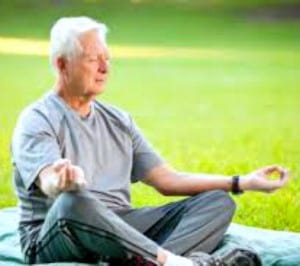
The researchers conducted a meta-analysis of 15 studies that investigated the effects of relaxation techniques on older adults. Twelve of the studies were randomized controlled trials. The analysis included six relaxation techniques: yoga, listening to music, progressive muscle relaxation training (PMRT), massage therapy, and stress management training.
Yoga, music, and PMRT—a method of tensing and relaxing muscle groups—were the most effective therapies. For anxiety, listening to music and doing yoga proved the most effective. For depression, music, yoga, and PMRT were the best treatments.
Yoga and PMRT interventions were the most persistent. Yoga’s positive effects lasted for six months after the intervention ended. Participants felt the salubrious effects of PMRT for 14 weeks after the study.
The study authors commented on the results, explaining why yoga may be an effective intervention. “It could help counterbalance the negative effects of aging, improve physical functioning, postpone disability, decrease morbidity and mortality, stimulate the mind, and increase hope, reducing the risk of anxiety and depression.”
This research is published in the journal Aging & Mental Health.



 © 2024 Unyte Health US Inc.
© 2024 Unyte Health US Inc.